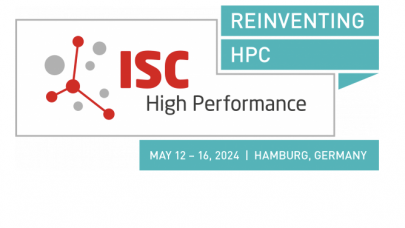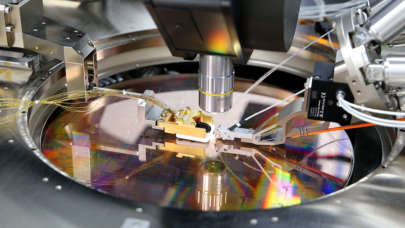In what is increasingly seen as a global competition for supercomputing capability, the European Commission (EC) this week put forth a plan to double its investment in high performance computing and deploy exascale machines before the end of the decade. The plan would increase Europe’s public HPC spend from €630 million to €1.2 billion and pump a greater share of the money into development, training, and creating “new centres of excellence.”
 Some of the impetus to crank up supercomputing investment by the Europeans is being driven by the globalization of the technology. That world-wide competition they face is reflected by the build-out of supercomputing infrastructure across the world. For example, three years ago, the US owned 58 percent of the fastest supercomputers, according to the TOP500 list. Today, that figure is down to 53 percent. Most of the shrinking US share was the result of the rapid growth in top supercomputers in China, which grew from 3 percent of the total nearly 15 percent over the same period.
Some of the impetus to crank up supercomputing investment by the Europeans is being driven by the globalization of the technology. That world-wide competition they face is reflected by the build-out of supercomputing infrastructure across the world. For example, three years ago, the US owned 58 percent of the fastest supercomputers, according to the TOP500 list. Today, that figure is down to 53 percent. Most of the shrinking US share was the result of the rapid growth in top supercomputers in China, which grew from 3 percent of the total nearly 15 percent over the same period.
But competition in the upper echelons of HPC is fierce, and requires continued investment. Europe’s share of the top supers has decreased dramatically since 2008, from 30.6 percent to 20.6 percent, and has already been eclipsed by Asia, which has soared to a 23.6 percent share. In the fast-moving supercomputing biz, you can’t be complacent; there are actually four fewer countries in the TOP500 club in 2011 than there were in 2008.
As it stands now, both the US and Japan each have more supercomputing capacity than all of Europe combined, and the continent’s lone top 10 system is the Bull-built supercomputer for the French Atomic Energy Authority. It certainly doesn’t have to be that way though. According to an IDC study, even though European GDP is roughly equal to that of the United States, the European Union (EU) only spends about half as much on big iron.
Those kinds of data points have compelled the European Commission to rethink its HPC spending habits, and for Neelie Kroes, the EC Vice President responsible for Europe’s Digital Agenda, to issue statements like this: “High Performance Computing is a crucial enabler for European industry and for more jobs in Europe. It’s investments like HPC that deliver innovations improving daily life. We’ve got to invest smartly in this field because we cannot afford to leave it to our competitors.”
As in the US and elsewhere, HPC is seen as a strategic technology to help solve societal issues like climate change and health care and advancing basic science in areas like particle physics and genomics. It is also seen as a means to spur businesses come up with new products and services, as well as increase productivity. As was noted by the EC report that describes its new HPC investment strategy: “At a macroeconomic level, it has been shown that returns on investment in HPC are extremely high and that the companies and countries that invest the most in HPC lead in science and economic success.”
The EC has attributed fully half of European productivity growth over the past 15 years to innovation in information and communications technologies. Not all of that is attributed to HPC, but as is noted by the same EC report, these cutting-edge technologies often make their way into the broader IT foodchain, and vice versa:
Advances in the area of HPC such as new computing technologies, software, energy efficiency, storage applications, etc. feed into the broader ICT industry and the consumer mass market, becoming available in households within five years of their introduction in high-end HPC. Conversely, advanced computing technologies developed for the consumer domain (e.g. energy efficient chips, graphic cards) are increasingly used in HPC.
The EC sees an opening here in the race to the exascale computing. Given that many of the technologies needed to support these exa-machines have yet to be developed, the playing field has been somewhat leveled, at least temporarily. In particular, these future systems will require components that are 100 times as energy efficient as those used in the current crop of supercomputers, and will need new programming models that can deal with millions of processing elements. To that end, the Europeans believe they can leverage their expertise in low-power computing, systems design, and integration.
The new EC plan is to devote about a quarter of the €1.2 billion to this type of R&D and in scaling up HPC software. An additional quarter of the funds is earmarked for training, especially in the area of parallel programming. The remaining half of the funds will be used to procure the HPC systems themselves.
That means about €600 million ($788 million) will be available to buy the machines, an amount roughly equal to the entire European HPC spend in 2009. That probably won’t bring it up to the level of the US, which spent an average of $979 million annually on supercomputers over last five years of the previous decade, but will put it in a much stronger number two position.
This is all certainly good news for PRACE, the Partnership of Advanced Computing in Europe, which is tasked to develop and manage a pan-European supercomputing infrastructure, as well as deliver HPC education and training. Its 24 member countries and the supercomputer centers they host are beholden to funding from the EU, and if the doubling of the money holds up, PRACE’s footprint should expand considerably.
The challenge for Europe is to bring the money to the table. It’s not exactly the most settled of fiscal times for the continent right now. Certainly the realization is there that HPC is an investment with a proven ROI. And since no single country in Europe is capable of keeping pace with the US (and possibly China) in this race to exascale, it makes sense for the member countries to band together. Europe may never be at the top of the heap in supercomputing, but it should certainly be among the world leaders.


























































